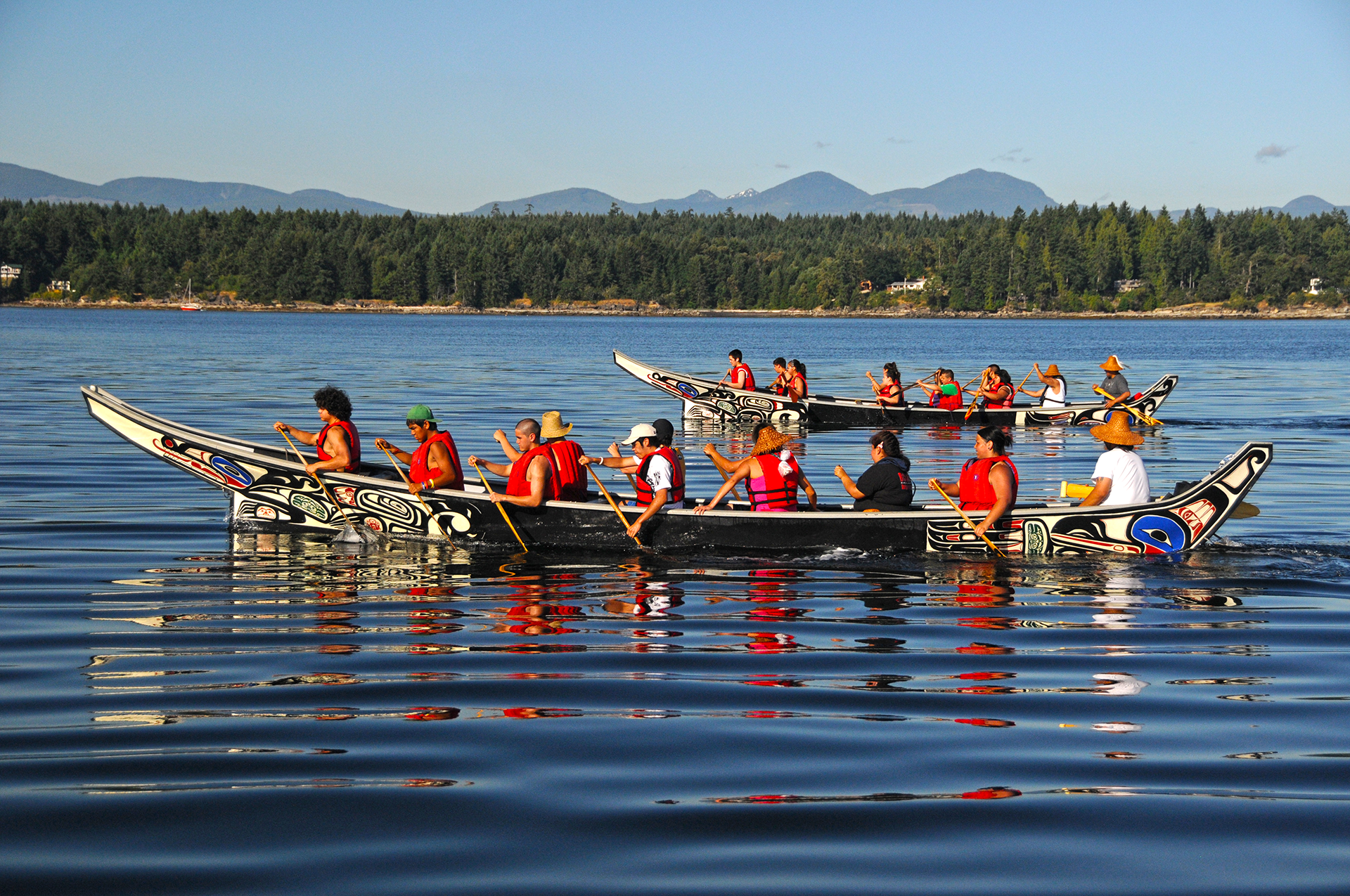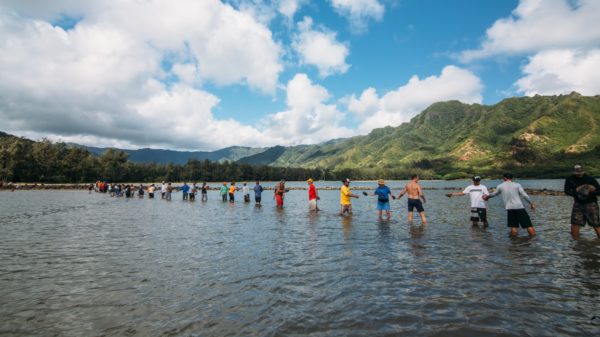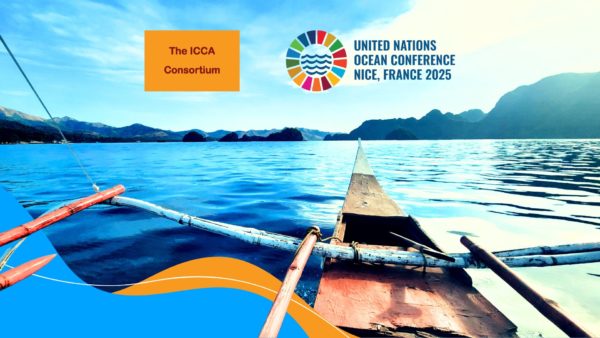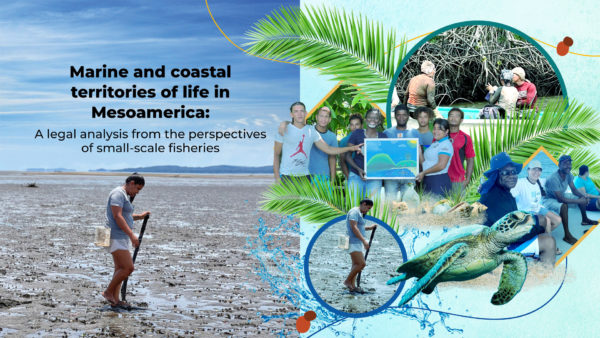A call to action from the marine territories of life
First published on 06/06/2025, and last updated on 06/18/2025
By ICCA Consortium
We are an association of Indigenous Peoples (IPs), Local Communities (LCs), Afro-descendant communities, artisanal fisher communities, and allied organizations that support the movement of communities to sustain and defend their coastal and marine ICCAs–territories of life, which are deeply engaged in community-led marine and coastal conservation.
As the 2025 UNOC convenes in Nice, France, from June 9 to 13 under the theme “Accelerating action and mobilizing all actors to conserve and sustainably use the ocean,” we put forward this statement and reiterate that Indigenous Peoples and Local Communities have an outsized role in governance, conservation, and sustainable use of our oceans. Territories and areas conserved by Indigenous Peoples and Local Communities—known as ICCAs or territories of life—are essential for biodiversity, ecological services, and cultural values. Some examples of territories of life in marine and coastal areas are ancestral domains, Locally Managed Marine Areas, Marine Areas of Responsible Fishing, and Coastal Marine Areas of Indigenous Peoples.
Article 1: Affirming Our Commitment to Community-led Marine Conservation
We reiterate our unwavering position that sustainable ocean governance must center the leadership, knowledge, and rights of Indigenous Peoples and Local Communities, who have for generations safeguarded marine and coastal ecosystems through customary laws, sacred responsibilities, and adaptive management systems. We reject governance models that marginalize or erase our voices, and we call for full recognition and integration of community-led conservation practices into local, national, regional, and global frameworks. This commitment is vital for achieving global goals, including those outlined in the 2030 Agenda for Sustainable Development, particularly SDG 14 (Life Below Water).
Article 2: On the Full and Effective Participation of Indigenous Peoples and Local Communities
We affirm that the full and effective participation of Indigenous Peoples and Local Communities is fundamental to achieving just, equitable, and sustainable ocean governance. This participation must go beyond symbolic inclusion to ensure that IPs and LCs, as rights-holders under international law, can meaningfully shape decisions at all levels, including through culturally appropriate, accessible, and well-resourced mechanisms that uphold Free, Prior, and Informed Consent (FPIC). We call on the UN Ocean Conference to institutionalize inclusive processes that actively integrate the knowledge, leadership, and priorities of IPs and LCs, including women, youth, elders, persons with disabilities, and nomadic and small-scale fisher communities, recognizing that without our leadership, no global ocean or biodiversity agenda can be legitimate or effective. This is further supported by principles found in the Voluntary Guidelines for Securing Sustainable Small-Scale Fisheries in the Context of Food Security and Poverty Eradication (SSF Guidelines).
Exclusion of Indigenous Peoples and Local Communities and their representative organizations from these vital global forums undermines not only the legitimacy of multilateral processes but also the effectiveness of global biodiversity targets such as the Kunming-Montreal Global Biodiversity Framework (GBF) and other biodiversity-anchored initiatives that require the active participation of Indigenous Peoples and Local Communities to succeed.
Article 3: Recognizing the Knowledge and Contributions of Indigenous Peoples and Local Communities
We emphasize that Indigenous Peoples and Local Communities have sophisticated, place-based knowledge systems essential to marine and coastal resilience, including customary marine tenure, seasonal management practices, sacred no-take zones, and community-enforced conservation measures. These knowledge systems must be treated as authoritative, not secondary or supplementary to scientific or state-led approaches.
We call on UNOC and all related processes to create meaningful spaces for knowledge sharing, co-creation of solutions, and joint governance models that respect the rights and leadership of Indigenous Peoples and Local Communities, consistent with the principles of Ecosystem-Based Management (EBM).
Article 4: On Rights, Equity, and Justice in Ocean Governance
We demand that ocean governance frameworks at all levels be grounded in the principles of justice, equity, human rights, and the collective rights of Indigenous Peoples and Local Communities, as enshrined in international instruments such as the United Nations Declaration on the Rights of Indigenous Peoples (UNDRIP), the Convention on Biological Diversity (CBD), and the International Labor Organization Convention No. 169. This also aligns with the emphasis on human rights within the SSF Guidelines and the overarching framework of the United Nations Convention on the Law of the Sea (UNCLOS), which serves as the legal basis for ocean activities.
This includes ensuring Free, Prior, and Informed Consent (FPIC) in all decisions affecting Indigenous Peoples and Local Communities’ marine and coastal territories, direct access to climate and conservation finance without discrimination or bureaucratic barriers, and robust mechanisms to protect Indigenous and Local Community marine defenders and coastal stewards from criminalization and violence, in line with the human rights-based approach to conservation.
Article 5: Direct, unimpeded, and equitable access to financial resources
We declare that Indigenous Peoples and Local Communities must have direct, unimpeded, and equitable access to financial resources intended to support their marine and coastal conservation efforts, without any political or legal impediments such as sanctions or Unilateral Coercive Measures (UCMs). Funding mechanisms must be designed to deliver resources without discriminatory barriers, political interference, or unnecessary intermediaries, ensuring that Indigenous Peoples and Local Communities, including women, youth, elders, persons with disabilities, and nomadic and small-scale fisher communities can exercise their right to self-determined development and stewardship. We call on the UN Ocean Conference and all relevant actors to establish decolonized, transparent, and simplified funding pathways that prioritize timely, accountable, and rights-based financial flows, empowering Indigenous Peoples and Local Communities to advance their priorities and solutions for the health of the world’s oceans and the well-being of future generations. This vision is intrinsically linked to achieving the Sustainable Development Goals (SDGs) and addressing global challenges highlighted by the Paris Agreement on climate change and the Sendai Framework for Disaster Risk Reduction.
Article 6: On the Importance of the BBNJ Agreement and High Seas Governance
We recognize the adoption of the Agreement under the United Nations Convention on the Law of the Sea on the Conservation and Sustainable Use of Marine Biological Diversity of Areas Beyond National Jurisdiction (BBNJ Agreement) in 2023 as a historic step toward protecting marine biodiversity in the high seas. The BBNJ Agreement emphasizes the importance of area-based management tools, including marine protected areas, and the equitable sharing of benefits derived from marine genetic resources. However, for the BBNJ Agreement to be effective and just, it must fully respect and incorporate the rights, knowledge systems, and leadership of Indigenous Peoples and Local Communities, particularly those who steward marine areas adjacent to or affected by high seas governance decisions. We call on all parties to the BBNJ Agreement to ensure its implementation aligns with human rights obligations, including the right to Free, Prior and Informed Consent (FPIC), and to create mechanisms for the meaningful participation of Indigenous Peoples and Local Communities in decision-making processes concerning ocean governance beyond national jurisdiction.
Article 7: Our Vision for the Future
We, the ICCA Consortium and its member organizations, stand ready to work alongside governments, international bodies, civil society, and other stakeholders to strengthen ocean governance models that uphold the integrity of marine ecosystems while honoring the rights, cultures, and leadership of Indigenous Peoples and Local Communities.
We envision oceans that are not only biodiversity-rich but also governed in ways that reflect justice, inclusion, and the lived realities of the peoples and communities most intimately connected to them.
The 2025 UN Ocean Conference must serve as a platform for collective learning, knowledge exchange, and solidarity. Only through the full and effective participation of Indigenous Peoples and Local Communities can we achieve the transformative changes required to safeguard the oceans and secure the well-being of all life on Earth for generations to come.



